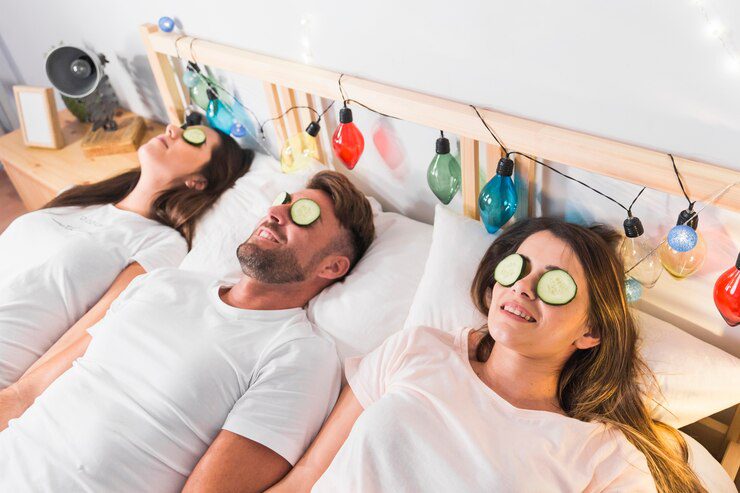We all know the feeling – that Monday morning drag, tossing and turning all night, feeling like a zombie on autopilot. Sleep deprivation is a modern plague, but fear not, weary warriors! Biohacking your sleep is here to level up your slumber and unlock peak performance and ultimate relaxation.
Why Biohack Your Sleep? Stats Don’t Lie
Sleep isn’t just for the weak. A recent study by the National Sleep Foundation [National Sleep Foundation, 2024] found that nearly 30% of adults in the US don’t get the recommended 7-8 hours of sleep each night. This lack of shut-eye has consequences, impacting our:
Productivity: Sleep deprivation = brain fog, decreased focus, and slower reaction times.
Mood & Energy: Feeling cranky and low on energy? Chronic sleep issues can mess with your mood and zap your motivation.
Physical Health: Sleep is essential for cellular repair and hormonal regulation. Skimp on sleep, and you’re asking for trouble down the road.
Biohacking Your Sleep: It’s Not Just About Counting Sheep
Biohacking your sleep goes beyond counting sheep (although that might still work for some!). It’s about understanding your body’s natural sleep-wake cycle (circadian rhythm) and implementing strategic changes to optimize your sleep quality. Here’s your roadmap to biohacking sleep success:
Light Control is King: Light exposure significantly impacts your circadian rhythm. Dim the lights an hour before bed and avoid screens that emit blue light.
Move Your Body, But Not Right Before Bed: Exercise is great, but avoid strenuous workouts right before bedtime. Opt for relaxing yoga or a light jog earlier in the day.
Chill Out, Dude (or Dudette): Stress is a sleeping saboteur. Practice relaxation techniques like meditation, deep breathing exercises, or taking a warm bath before bed.
Power Down Your Devices: The constant ping-pong of notifications is no recipe for sleep. Create a tech-free zone in your bedroom and silence your notifications.
Biohacking Beyond the Basics: A Sleep Hacker’s Toolkit
Once you’ve mastered the fundamentals, consider these additional biohacking sleep strategies:
Circadian Rhythm Optimization: Track your sleep patterns with a sleep tracker and adjust your sleep schedule to align with your natural rhythm.
Strategic Napping: A power nap (20-30 minutes) can boost alertness without disrupting nighttime sleep.
Sleep Supplements (with Caution): Melatonin and magnesium can support sleep, but consult your doctor before taking any supplements.
Biohacking Your Sleep: A Personalized Approach
There’s no one-size-fits-all approach to biohacking sleep and natural sleep remedies. Explore different options to discover what suits you most effectively. Here’s a table to get you started:
| Sleep Challenge | Biohacking Sleep Hack |
| Trouble Falling Asleep | Create a relaxing bedtime routine, avoid caffeine and alcohol before bed, and try reading a book instead of scrolling through social media. |
| Frequent Waking During the Night | Ensure your bedroom is cool, dark, and quiet. Consider using a weighted blanket for a sense of security. |
| Restless Sleep, Non-Restorative Feeling | Optimize your diet – avoid heavy meals before bed, focus on foods rich in magnesium like leafy greens and nuts. |
Biohacking Your Sleep: The Ultimate Reward
By biohacking your sleep, you’re investing in your overall well-being. Imagine waking up feeling refreshed and energized, ready to tackle the day with peak performance. You’ll have improved focus, enhanced creativity, and a stronger immune system. So ditch the sleepless nights and bio-hack your way to a happier, healthier you. Sweet dreams!







